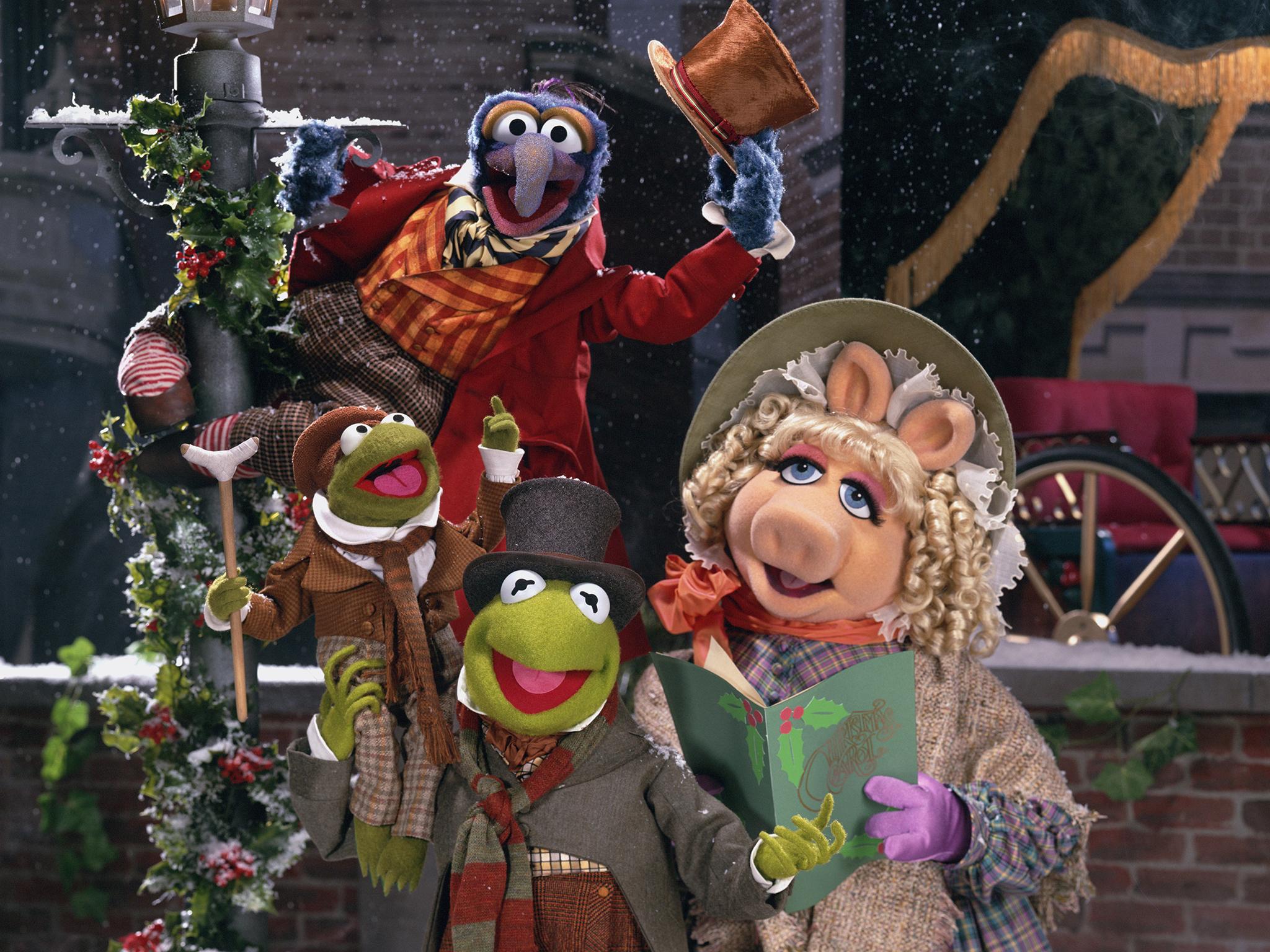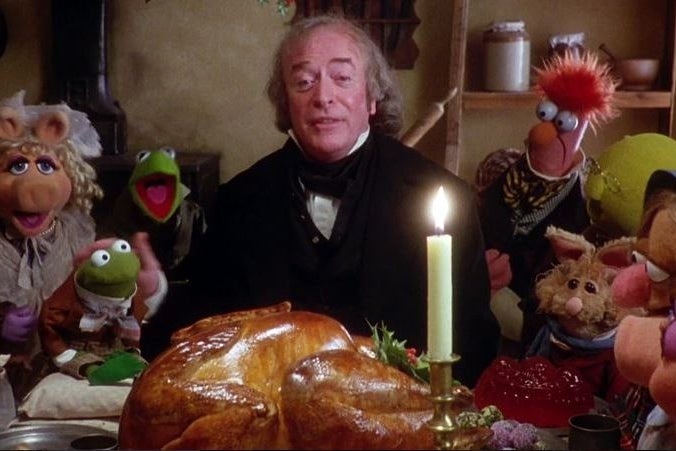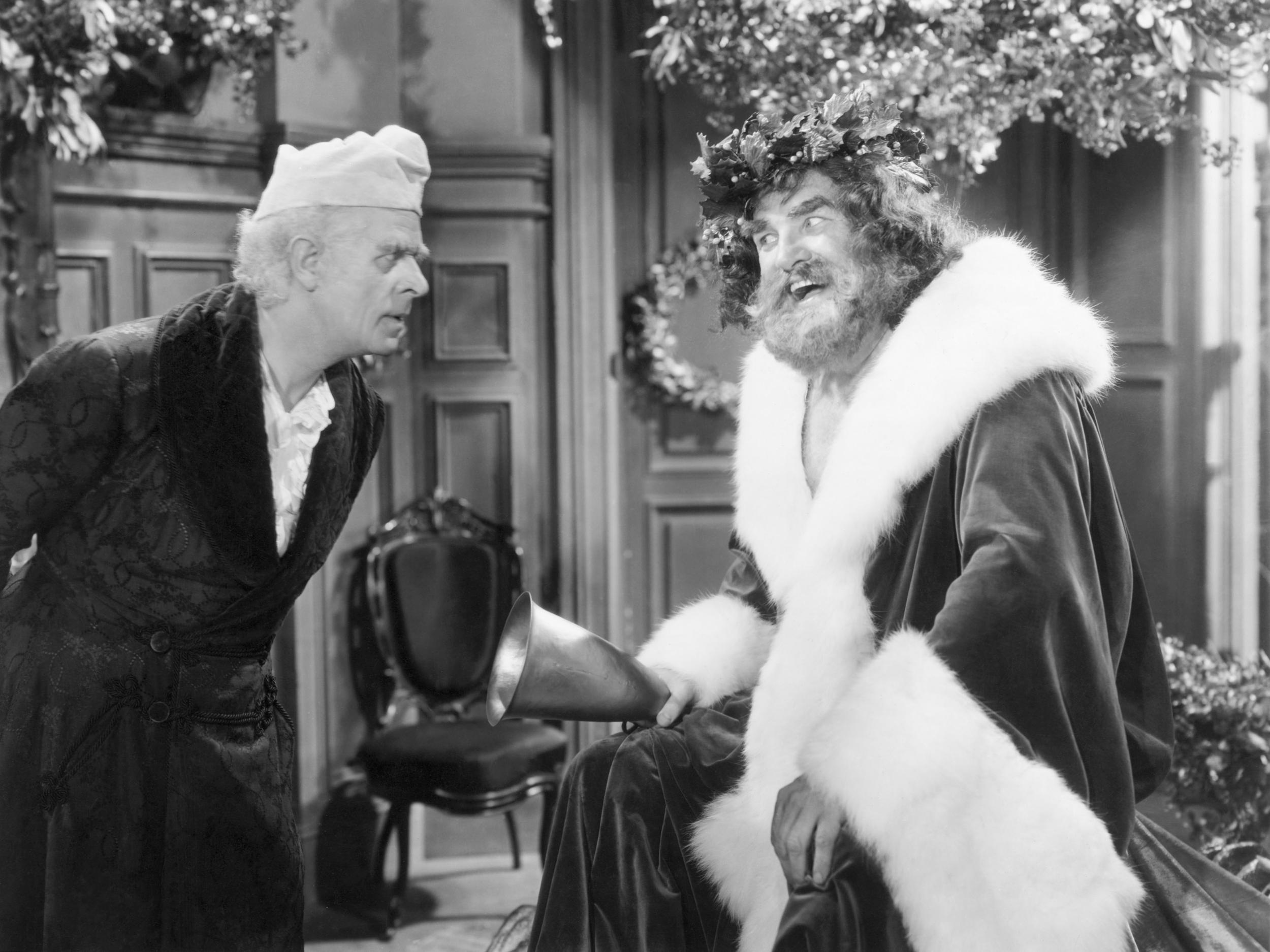Why The Muppet Christmas Carol set the gold standard for Dickens adaptations
As the BBC prepares to release yet another adaptation of the classic novella, Ed Power makes a case for why The Muppets are still the ones to beat

Your support helps us to tell the story
From reproductive rights to climate change to Big Tech, The Independent is on the ground when the story is developing. Whether it's investigating the financials of Elon Musk's pro-Trump PAC or producing our latest documentary, 'The A Word', which shines a light on the American women fighting for reproductive rights, we know how important it is to parse out the facts from the messaging.
At such a critical moment in US history, we need reporters on the ground. Your donation allows us to keep sending journalists to speak to both sides of the story.
The Independent is trusted by Americans across the entire political spectrum. And unlike many other quality news outlets, we choose not to lock Americans out of our reporting and analysis with paywalls. We believe quality journalism should be available to everyone, paid for by those who can afford it.
Your support makes all the difference.Charles Dickens’ A Christmas Carol is often credited with inventing 25 December as we know it today. But his tale of a lost soul stalked by the ghosts of the past (and present, and future...) also sets the blueprint of the modern horror story. It is that seam of uncanniness that Peaky Blinders creator Steven Knight taps enthusiastically in the BBC’s baroque new retelling of the seasonal staple. This is Dickens reimagined as a shrieking nightmare box. Judging by the trailers, Knight’s tilt could have been retitled the “Haunting of Ebenezer Scrooge”star.
However, the new version will have to be special indeed if it is to topple The Muppet Christmas Carol from its perch as the definitive adaptation of the Dickens classic – and perhaps the greatest Christmas movie of its decade. The 1992 film was an extraordinary accomplishment, especially in light of the fact that its 27-year-old first-time director, Brian Henson, was making it while grieving for his father, Muppets creator Jim Henson.
Henson senior died suddenly in May 1990 from a virulent strain of pneumonia. His passing cast a shadow over The Muppet Christmas Carol when it was released in the Christmas period 18 months later. Yet the tragedy appeared to drive Brian and his puppeteers, most of whom had been with the Henson company since the dawn of the Muppets in 1976, to outdo themselves. That determination filtered into the performance of the project’s solitary human star Michael Caine, twinkling (and singing) as he never has before or since.
“Brian Henson did a great job directing with a script by veteran Muppet writer Jerry Juhl, who was responsible or partly responsible for a huge number of the productions people think of when they think of fond Muppet memories,” says Ryan Roe, host of Muppet-themed podcast Movin’ Right Along, and author at the Muppet fansite Toughpigs. “The script is surprisingly faithful to the book, but with no shortage of terrific jokes.
“All the great Muppet performers were on deck – Frank Oz, Jerry Nelson, Dave Goelz, Steve Whitmire, Kevin Clash, and others. The songs by Paul Williams are memorable and often touching. And Michael Caine was perfectly cast as Scrooge. He plays it completely straight and has real chemistry with the Muppets. At this point, I’m sure a lot of fans are more familiar with The Muppet Christmas Carol than they are even with some of the Jim Henson-era movies.”
A new Muppet film was the last thing on Brian Henson’s mind as he processed the sudden passing of his father at just 53. Then, early in 1991, the family’s agent Bill Haber got in touch and suggested a puppet-based project based on A Christmas Carol. Out of politeness, Henson agreed to think it over. Half an hour later there came another call: Haber had sold a Charles Dickens Muppet Movie. They had the green light.
Still numb with grief for his father, Brian wanted to make something maniacal. Emotionally, he was all over the place. A crazy Muppet film was where his head was at. “The Muppets are famous for questioning the status quo, and anti-establishment irreverence,” he would later say. “So we took that and pointed it at Charles Dickens ... We were going to do a romping parody.”
But as he read and reread Dickens, doubts seeped in. Is this how his father would have gone about it? Would Jim Henson have sought to skewer Dickens – or honour his vision?
“We stopped and reconsidered. Nobody had ever captured Dickens’ prose – the wonderful way he described the scenes,” Brian Henson later observed. “So we had to put Charles Dickens in the movie. Who’s the least likely character to be Charles Dickens? Gonzo! So we made him this omniscient storyteller, with Rizzo [the comic rat] his pain-in-the-neck sidekick. Ninety-five per cent of what Gonzo says in the movie is directly taken from the book.”
They hunted far and wide for the perfect Scrooge. Among the actors considered were David Warner, Ron Moody (aka Fagin from 1968’s Oliver!) and David Hemmings. Henson and his team also seriously contemplated crotchety American stand-up Bob Carlin, who gave several screen tests.
But when 58-year-old Michael Caine walked in they knew they had their Ebenezer. He had prepared for his audition not by immersing himself in Victorian literature but by turning on the news. Caine revealed that he had got into Scrooge’s headspace by “watching CNN and seeing the trials and tribulations of all the Wall Street cheats and embezzlers”.
“I thought they represented a very good picture of meanness and greed,” he added. “My Scrooge is particularly irredeemable, and more psychotic than most.”
With Caine as Scrooge, everything else fell into place. Kermit the Frog, voiced by Jim Henson’s acolyte Steve Whitmire, would be Ebenezer’s downtrodden lackey Bob Cratchit. Miss Piggy (Frank Oz) played Bob’s long-suffering wife, Emily. Scrooge’s dead partner Jacob Marley would be joined by his brother Robert, the pair portrayed by the Muppet Show’s original grumpy old men, Statler and Waldorf (Jerry Nelson and Dave Goelz). The story would be narrated by Charles Dickens – represented on screen with surprising verisimilitude by the Great Gonzo (Goelz again).
Taking over from Jim Henson as Kermit was obviously a challenge for Whitmire. He was anxious about staying true to the beloved character. So much so that the upcoming production began to haunt his dreams. “Jim and I don’t sound exactly alike,” he later said. “The night before we pre-recorded the songs, I had a lot of trouble getting to sleep, thinking, ‘I really want this to be good, this means so much to everybody.’”
When he finally nodded off, he had a vision of Jim Henson sitting opposite. “I said to him, ‘I’m really nervous about taking over Kermit.’ He looked at me. Jim would do this thing where he would take one finger and put it on his bottom lip as he was thinking – he thought like this for a second and said, ‘It’ll pass.’ And he walked away. It felt much more like a visit than a dream.”
“We already knew that Jim wanted the Muppets to live beyond him, because that’s why he was selling to Disney,” added Goelz. “The question for us was: were we up to it? Did we want to try it? And we all felt that it was our life’s work – it wasn’t just a job – so we decided to try.”

Caine was clearly having the time of his life singing and dancing in the painstaking recreation of Victorian London, which had been constructed at Shepperton Studios. Nonetheless, Brian Henson and his team resisted making a feel-good film.
Their new bosses at Disney were sympathetic to this vision. Disney had recently acquired the Jim Henson Company (as it is today named). Closing the $200m sale had been one of Jim Henson’s final accomplishments before he passed. Yet far from sticking its big mouse-shaped nose in, Disney was respectful towards Brian.
As represented by executive Jeffrey Katzenberg, Disney tread softly. Henson was given all the space it was felt he would need (though, as we shall see below, the tone changed in post-production). Disney’s control would ultimately be short-lived, with the Jim Henson Company sold to a German media company in 2000, before ultimately passing back into the ownership of the Henson family.
“Katzenberg could see that it was an emotionally fragile environment,” said Henson. “He kept his production department away from me.”
Perhaps that is how he was able to get away with pouring so much darkness into what was nominally a kids’ movie.
“When Scrooge comes home,” said Henson. “And he’s an angry, lonely man, and the first ghosts show up, I knew I was going to scare people.”
The Christmas Ghosts are, as Henson said, creepy indeed. The Ghost of Christmas Past is an unsettling childlike entity floating in billowing vapours. The Ghost of Christmas Present an animatronic waxwork figure that looks like a possessed Father Christmas (the head remote-operated by a puppeteer). Most terrifying of all is the Ghost of Christmas Yet to Come, a towering reaper figure looming over Caine.
“There were kids crying in the cinemas,” Henson recalled. “You need to go to those dark places for the ending to be as joyous as it can be.”
“In Brian Henson’s director’s commentary, he talks about early concepts for the movie where the ghosts would all be played by familiar Muppet characters: Piggy, Scooter, and Gonzo,” says Ryan Roe. “That would have been fun, but I think they made the right choice to create new puppets of the ghosts as described in the book.
“The arc of Scrooge’s life with its potential and its failures resonates more emotionally with the ghosts than it would have if the same scenes featured Piggy or Scooter. And I think for Scrooge’s redemption to be convincing you have to really buy that he’s terrified of the possibilities shown to him by the Ghost of Christmas Yet to Come, which probably wouldn’t have been possible with Gonzo.”
This was done out of respect for Dickens, but also out of fealty to Jim Henson. The last thing he would have wanted, those close to him knew, was a gothic classic redone as Disney syrup onslaught.
“Frank Oz once gave an interview in which he noted that Jim Henson believed it was fine to scare children,” says Roe. “Given that he made the Dark Crystal, Labyrinth and the Storyteller knowing that kids were likely to watch them, I’d like to think Jim would have approved of the ghosts in Christmas Carol.”
“Jim hated being cute, and hated saccharine,” said Oz, who, in addition to voicing Miss Piggy, produced The Muppet Christmas Carol. “He hated faux sentimentality.”
Another of the film’s hallmarks are the songs of Paul Williams: “It Feels Like Christmas”, “Thankful Heart”, “Bless Us All” and “Love Is Gone”. The final number, which lays bare Scrooge’s inner pain, was notoriously cut by Disney amid fears it would bore children.
Still Williams was happy simply to be on board. As a soft-rock wunderkind in the Seventies, he had led a charmed existence. He wrote “We’ve Only Just Begun” for The Carpenters and “Evergreen” from A Star is Born. But he spent the following decade sliding into drug addiction. In his darkest days, he would bunker down for weeks at his house in Los Angeles, peeping through drawn curtains at the world outside.
Finally, in 1990, he pulled himself together and resolved to get back on track. He’d written for The Muppets in the Seventies. Jim Henson was the first person he planned to call when he got himself together. Two weeks after exiting rehab, Williams picked up a newspaper to see the Muppets creator had died.
He nonetheless reached out to the Henson Company, which is how he found himself composing for The Muppet Christmas Carol. The songs elevated the film, sprinkling stardust over Dickens’ baroque story. For Williams, the project was a lifeline.
“When I got sober, the career I thought I had was pretty much gone,” he told Vulture in 2017. “I just fell in love with recovery, I felt like that’s all I wanted to do, and I didn’t know if I was ever going to write music again. And then I was asked to write the songs for The Muppet Christmas Carol. Every now and then, the universe will line up to do something at the right time in your life.”

Critics had been sniffy towards previous Muppets movies. However, they tumbled head over heels for The Muppet Christmas Carol. The New York Times praised it as “a lively kiddie version of the Dickens tale, one that very young viewers ought to understand”. Variety agreed, noting: “Nothing can really diminish the late Jim Henson’s irresistibly appealing characters.” Audiences saw it the same way, with the film grossing a better-than-expected $27.3m.
But it is in its afterlife as a December touchstone that it has truly shone. The Muppet Christmas Carol was a hit all over again when re-released in in 2017. And for Michael Caine it stands tall as a personal favourite.
“A man mentioned the Muppets and I said, ‘That’s it! I’ll do that!’” he confided to GQ. “I could make it, and my daughter could see it. That’s why I did it. And it was lovely ... I think it’s the funniest of the lot. I see it every year, because it’s on television every year at Christmas. It can never grow old, unlike me.”
The new adaptation of A Christmas Carol begins on Sunday at 9pm on BBC1
Join our commenting forum
Join thought-provoking conversations, follow other Independent readers and see their replies
Comments